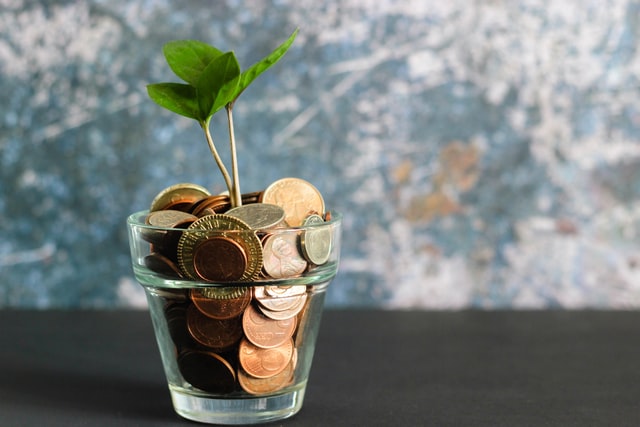Have you never invested in the financial markets before? If you are wondering whether or not to start allocating a part of your savings to the Stock Market or other savings methods, this article will interest you. Trying to achieve perfection kills action. People spend countless time looking for the best time to invest, undervalued stocks that will hit the next ball, an exotic financial product with great potential for appreciation, the start-up that is going to revolutionize the world. When the best investment beginner can do is jump into investing as soon as possible. Later you will have time to improve and perfect.

Shoot first. Then when you know where the bullet has gone, sharpen your aim. The most important thing for someone who has never invested should be the when (as soon as possible) and not the where (to choose the best investment product in the sea of ??infinite options). Saving is a great concept that many of us fail to do but often we don’t need to invest much. Sometimes we accumulate interest over the years which makes life easier. You may want to look at a compound interest calculator.
Why should you start investing as soon as possible if you have never invested in the financial markets? By investing money you will gain investment experience, you will learn before your mistakes and you will begin to benefit from the benefits of compounding. Also, you will get into the habit of saving and investing every month.
What about the stock market? This is a good place too and you can learn the rudiments of the craft of investing as you go.
Gain investment experience
Experience is a degree. Make sure you have good practices, because later for more qualified jobs your experience is valued more than your academic record. The same can be applied in areas of investing. Only with your experience and launching to invest as soon as possible, you will find out where is the best place to invest your savings. You can read a hundred books on personal finance, investing, and economics. Follow all the stock market experts on Twitter every day for years, ask financial advisers who are experts on the subject, research on blogs for countless hours, etc, but if you don’t invest your own money, it’s useless. You will never really learn.
Make mistakes as soon as possible
“Never ask anyone about their recommendation, opinion, or prognosis. Ask them if they have it, or not, in their portfolio. ” Nassim Taleb. The most valuable lessons an investor learns are when playing his own money. It is what is known as skin in the game (playing the skin). When you invest your assets, you analyze all the options more carefully. If you win you celebrate it, but if you lose you try to find all the explanations. Why have I lost money? Maybe it’s because my investment was not as good as I thought? Or could you have invested at a bad time or ignored some important variable? Making mistakes is a crucial part of any learning process. Don’t be afraid of losing money if it involves learning a lesson. That accumulation of small losses of money transformed into learning will make you win much more in the long run than simply not having invested for fear of losing.
Benefit from compound capitalization
“Compound interest is the eighth wonder of the world. He who understands it wins it; he who doesn’t understand it pays for it. ” –Albert Einstein. Starting investing as early as possible will earn you more in the long run. Interest generates more interest which in turn generates more interest. It is like a snowball. If you leave it longer, each time the capital gains will be greater than the money you invest.
Build healthy financial habits
It doesn’t matter how ambitious your goals are. What matters is what you do repeatedly. The consistency of your actions will make a difference. Imagine that you intend to run a half marathon without being in shape. What will happen? Most likely, if your willpower is not very high, you will end up giving up. Better aim to go for a run twice a week. If all goes well, run those 20k. Instead of setting yourself an ambitious and unrealistic goal (earning $100,000 on the Stock Market), look for the adherence of your actions (invest a percentage of your salary every month). In this way, you will gain consistency in your actions, and you will ensure that you do not abandon the first few changes.

By investing as soon as possible you will force yourself to forge healthy financial habits that will accompany you for the rest of your life. When you acquire habits, everything becomes easier. In a short time, it will not even cost you to save and invest, you will do it like an automaton.
- Control your expenses and save. Every month you know exactly how much money you have spent and how you have spent it. You can set a monthly savings percentage of at least 10% of your income and you try to meet it.
- Discipline to invest every month and patience to get results. There are no shortcuts here.
- Skeptical fitness. You must first investigate it yourself, even after hearing about it. More when you invest any money. Investing in the Stock Market and other areas is great but try to stay away from fantasies that are far from reality.
The most recommended method to save: Tracking your expenses
Information is power. The first step is to measure the pulse of your finances. This is the most boring part, but certainly the most useful. If you don’t know how much you spend or how you spend it, you will never know where you are going. The first step should be to be aware of all your expenses. How to do it? Easy. Monitoring all your expenses and keeping an exhaustive accounting control of what comes out of your pocket. Cent by cent. There are no shortcuts. Don’t panic, yet! Next, I am going to teach you methods to do it automatically and without headaches. Through mobile Apps. Although there are many alternatives, these rank highly on many review websites. In all three apps, you will record expenses at the speed of light and receive valuable reports.
- Money Pro offers the greatest customization, enviable visual appearance, and very complete information presented on a silver platter.
- Fintonic takes your bank details to organize them automatically and help with budgeting.
- The Accounting Registry (or Money Manager) will also allow you to take full control of your finances without compromising your privacy.

The second way is manual. If you prefer to do it the old way you can do it through Microsoft Excel / Google Sheets or a pencil and paper. Remember to store tickets when you pay in cash, and see bank movements when you pay by card. Through this perhaps more cumbersome method, you will have 100% control. Sometimes the old ways are still the best!
Define Expense Categories
To know exactly how you are spending your money, and you will know exactly where to save more. This is something very personal because each person is different and will have different items of expenses. In my case, I have these categories with subcategories in parentheses to get more data. Take them as an example but adapt them to your specific situation to obtain a greater degree of customization.
Evolution of Income and Expenses (Savings Rate)
The cash flow of all your finances. You must record the total income and expenses month by month to see the evolution. Are you saving more or less? What trend do your expenses and income follow? Putting the evolution on a graph will give us very useful information and will keep us motivated to stay on the right track. And what is more important, you will be able to obtain your savings rate (how much of your income finally becomes savings). A higher savings rate will allow you to buy your financial freedom sooner.
Evolution of Assets and Liabilities (Equity)
Still photographs of all your assets and liabilities, and consequently of your financial assets (Assets – Liabilities). Periodically (it can be monthly, quarterly, or annually) you should take stock of all your net wealth. Year after year, are you poorer or richer? If you can’t figure it out and put numbers on it, what’s the point of saving more? How much of each euro you manage to save does it make you richer? Knowing it is key. Otherwise, you will be financially blind. You will not know where you are or where you are going.
Research the quality, durability, and value it will bring to our lives before closing the transaction. Read reviews of other buyers and compare with the characteristics of similar products. This way you will avoid making hasty decisions. This way you will be able to save money and healthily invest money, every time.

Leave a Reply